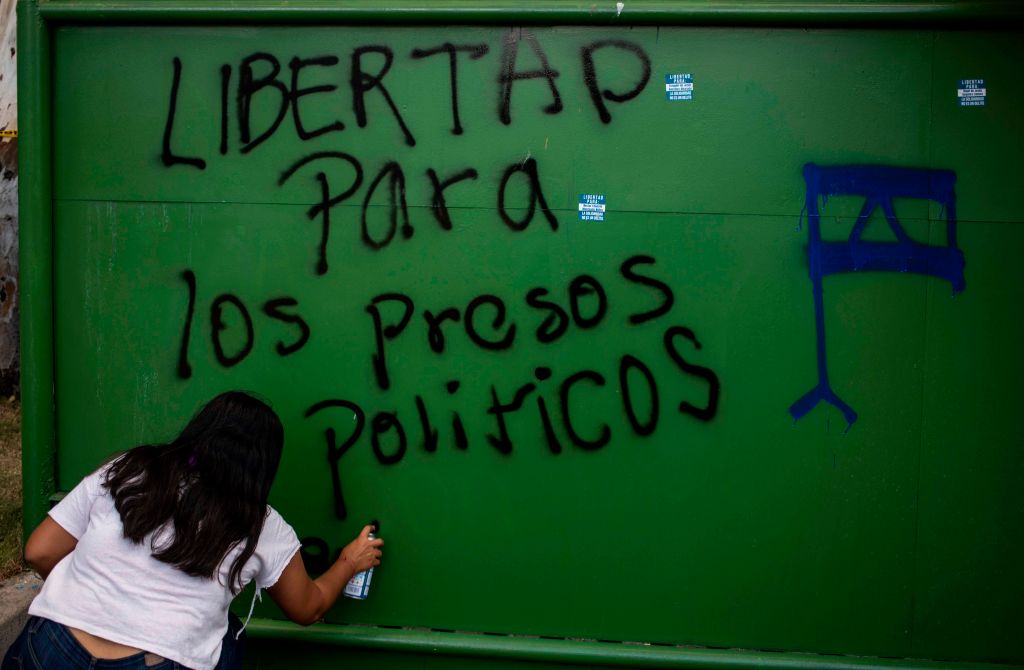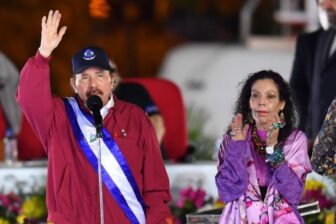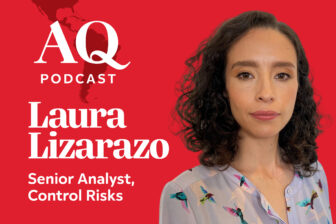On February 9, the Nicaraguan government released 222 people widely considered political prisoners and deported them to the U.S. Before the release, the Nicaraguan opposition had released a tally saying 245 political prisoners were incarcerated in the country.
AQ asked observers to share their reaction to the events. We will update this page as developments arise.
Cindy Regidor, journalist at Confidencial Nicaragua
This long-overdue step frees civic leaders, presidential hopefuls, human rights activists, youth activists, business leaders, religious leaders and journalists. It marks the beginning of a new chapter in the civic struggle for the restoration of democracy and human rights in Nicaragua.
The release of prominent opposition figures will invigorate the political and social movements inside and outside of Nicaragua that have pushed for change since 2018, when massive protests called for a peaceful transition to democracy and accountability for the human rights abuses committed by the regime of President Daniel Ortega. But it won’t be easy for the civic leaders to lead this movement from abroad. If free and fair elections are to provide a peaceful way out of the current crisis, the international community, along with Nicaraguan citizens, will need to continue to pressure the regime.
U.S. officials have said that this was a unilateral move made by the Nicaraguan government. In public, Ortega may bluff with bluster and insult the U.S., but he understands the need to improve the relations with Nicaragua’s biggest economic trade partner. This move indicates the regime is weaker than it seems, and felt it necessary to make a concession.
Luis Guillermo Solís, former president of Costa Rica
The liberation of more than 200 political prisoners who were under deplorable humanitarian conditions in Nicaragua is welcome news, putting an end to years of serious human rights violations and allowing the victims to rejoin their families, who justifiably feared for their lives. But this announcement was accompanied by another: All former prisoners, accused of being traitors, will be stripped of their Nicaraguan citizenship and forever banned from participating in elections in their home country. This was a condition hastily incorporated into the Nicaraguan Constitution by the country’s subservient, single-party legislature only minutes after the release was announced. Hence, the larger issue at hand—the lack of democracy in Nicaragua and the need to restore it—is far from resolved.
The long-awaited liberation seemed to result from U.S. government-led negotiations. While the objectives and prospects of those supposed negotiations are unknown, the U.S. had been adamant in demanding the “unilateral and unconditional” liberation of the Nicaraguan political prisoners for the last several years. This demand was accompanied by an increasing number of sanctions imposed on the Ortega-Murillo regime by the U.S., which evidently have had a negative effect on Nicaragua’s economy.
Most of the prisoners are high-level leaders of strategic sectors of Nicaraguan society, imprisoned precisely because they represented a threat to the regime’s survival. Sending them into exile and depriving them of their basic rights is a clear indication of Ortega’s intentions of keeping power. The U.S. must avoid falling into extreme geopolitical pragmatism vis-à-vis the Nicaraguan dictatorship. Nor should existing sanctions be removed without ensuring that the regime will allow further and deeper democratic openings in the near future. To do otherwise would send the wrong message to other autocrats in the region and beyond—and allow the liberation of the political prisoners to become another failed opportunity to regain the democratic traction Central America so urgently needs.
Valeria Vásquez, Central America analyst at Control Risks
It is undoubtedly the most significant move since Nicaragua’s socio-political crisis started in 2018. We might not know the whole story of how this was pulled off, but it is huge. On one hand, it highlights that the regime is weaker than it seems. President Daniel Ortega and Vice President Rosario Murillo finally understood that to stay afloat, they need to make concessions. On the other, it is the starting point for opening communication channels with the U.S. Even so, this is not a sign of a change in governance and does not mean Ortega and Murillo will hold free and fair elections. However, it may indirectly force the regime to pause (at least for a while) its repressive tactics.
Today’s move may become the international community’s greatest achievement concerning Nicaragua in recent memory. It may also be the regime’s best chance to establish diplomatic dialogue and reduce international pressure. If the regime continues to make concessions, this may allow it more time in power.
Isabel Saint Malo, former vice president and foreign minister of Panama
Today we celebrate the release of 222 political prisoners in Nicaragua, a couple of whom are dear friends. Many, like Juan Sebastian Chamorro, knew that their liberties were in danger and still chose to fight for democracy, at their own personal risk and that of their families.
Diplomacy has worked in defense of human rights, and the efforts of U.S. diplomacy must be recognized and celebrated. However, such efforts must not diminish; the release of the prisoners and their transfer to U.S. soil frees them, but it does not free Nicaragua. The country remains under the oppression of a ruthless dictatorship that holds its citizens hostage.
While the statement by the U.S. State Department recognizes the release as a constructive step by the Nicaraguan regime, we need not forget that diplomacy worked after sanctions were imposed last October, impeding the entry to the U.S. of 500 Nicaraguan citizens working for the regime.
With the release of the political prisoners, our efforts need to be directed toward free and fair elections. Pressure must be kept up for diplomacy to work in recovering democracy in this Central American nation.
Eric Farnsworth, vice president of the Council of the Americas in Washington, D.C.
The release is very good news and also very long overdue. As Nicaragua moved from imperfect democracy to dictatorship, the Ortega-Murillo regime has increasingly used political repression to eliminate any real opposition and to solidify its own control. Sham trials handed down sentences of some ten and 15 years without any justification, filling Nicaragua’s notorious El Chipote prison with political prisoners while scaring others into silence or even exile.
It’s unclear why the regime has now relented by releasing more than 200 prisoners, although reports abound of patient U.S. State Department diplomacy particularly Ambassador in Managua Kevin Sullivan. Nonetheless, while this move is to be celebrated, the basic character of the regime remains unchanged. It would be folly to “credit” the Ortega-Murillo regime for this act, without actually dismantling the police state that Nicaragua has become. Let’s call it for what it is: a welcome humanitarian release of hundreds of prisoners who should never have been grabbed and held in the first place by a dictatorial, oppressive regime. Hopefully, it will lead to further positive steps. Until such time, pressure for democratic change must continue to be applied by Washington and, increasingly, by Nicaragua’s democratic neighbors.
Tiziano Breda, researcher at Istituto Affari Internazionali (IAI)
Ortega had openly suggested in his speech after the 2021 elections, widely viewed as fraudulent, that he would only release political prisoners if the U.S. took them. Therefore, today’s move is not a complete surprise, but it is quite significant.
Besides relieving hundreds of families, Ortega is likely to use this “good will” gesture to push back on critics with the country’s jails now virtually empty of political prisoners. This also reinforces his narrative that those prisoners served imperialist U.S. interests, given that the government stripped them of the Nicaraguan citizenship when they were deported.
Against this backdrop, the concession is unlikely to lead to other major political openings on a democratic transition, at least in the short term. Even so, the release of its most prominent figures is likely to galvanize an opposition movement that had become less organized in recent years. This will allow it the chance to regroup, even if from abroad, and even prepare for potential future negotiations.
Doubts remain, however, on the reasons that led Ortega to make this decision. We do not know whether it was a unilateral move—at odds with the president’s previous use of political prisoners as bargaining chips; whether it was negotiated with the U.S. government, which had tried to engage Managua in 2022; or whether it may even have been the result of a more coordinated process with the participation of Latin American governments, many of whom, despite ideological affinities, have bluntly criticized Ortega’s methods, even in international fora like the CELAC Summit.







